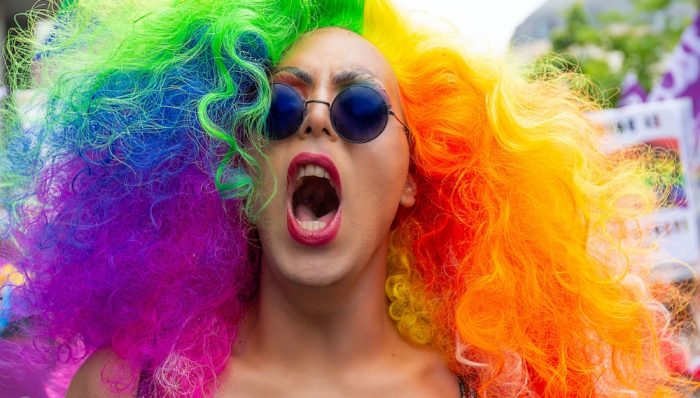There was one Saturday night when I was out drinking with two of my male friends, both of whom I was under the impression were straight men.
We were talking candidly with each other when two of us suddenly teased the other one about his certain significant someone whom he had not yet named.
I had the image printed in my head, imagining his lover to be an angelic girl with a high-pitched voice who would match the charisma of my good male friend.
Minutes into pushing him to reveal her name, we started guessing it on our own. And not once did I think to mention a man’s name. It just never occurred to me that he might be gay. And at that time, the image had long been established in my mind that I forgot to consider the possibility.
While we were running out of names to say, he finally interrupted us by shouting his lover’s name out loud. We spent a few seconds in silence after hearing a masculine name, out of respect for his courage to tell us. But we carried on with our conversation, much to our friend’s surprise.
And while the image of a girl had been replaced with that of a man, we listened to his stories about how the two of them met, how they spent their dates together, and how he genuinely feels for the person.
As we carried on with our drinks, I pondered on how hard it must have been for him to conceal the identity of the one he adores just because he thought that we’d look at him a different way. But from that night, he was reassured that nothing has changed. If anything, he felt the comfort of finally being able to open up to his friends.
He is just one of my many friends and family who belong to the LGBTQ+ community. And I always tell them that they can confide in me about whatever it is they are going through, even in detail if need be. It shouldn’t be that just because someone’s gay and I’m not, they can’t open up to me without me feeling uneasy. There is no point in worrying about the difference in our sexualities because we all feel the same core emotions regardless of what we identify as.
I must admit that, as a kid, I had been raised to look at gay people in a different and prejudiced way because, until recent years, mainstream media had always portrayed them as deviant personalities who were mostly used for comic relief.
Friends used the term “Gay,” or “Bakla” in Filipino, as an insult that was often associated with weakness. And it was not until a certain point in my life that I realized how much I had been part of the problem just by tolerating it.
But upon the realization that remaining neutral and being a bystander to discrimination or bullying makes me as bad as the bully, I began to reassess which side I should be in.
I am not part of the LGBTQ+ community, but it doesn’t take away my right to fight the good fight. The reason is that discrimination should never be taken lightly, and it is not so little that we can convince ourselves it isn’t as bad as the victims make it seem. Some people live under the fear of discrimination, and it can inhibit them from enjoying life as we do.
So I am calling for the straight men and women to not only be a friend to our brothers and sisters in the LGBTQ+ community but to also be a confidant. Be the kind of friend whom they can approach and tell their stories.
To sympathize with someone, you do not have to be in the same place as them. When you think about what it would take for you to do it, you’ll end up realizing that it’s not a challenge at all.
I should end this note with empathetic words from former United States President Barack Obama, which I believe encapsulate my point:
“No one in America should ever be afraid to walk down the street holding hands with the person they love.”
And to add, everyone should experience the comfort of sharing their stories without the fear of being judged.


 Share on bsky
Share on bsky





Read 0 comments and reply